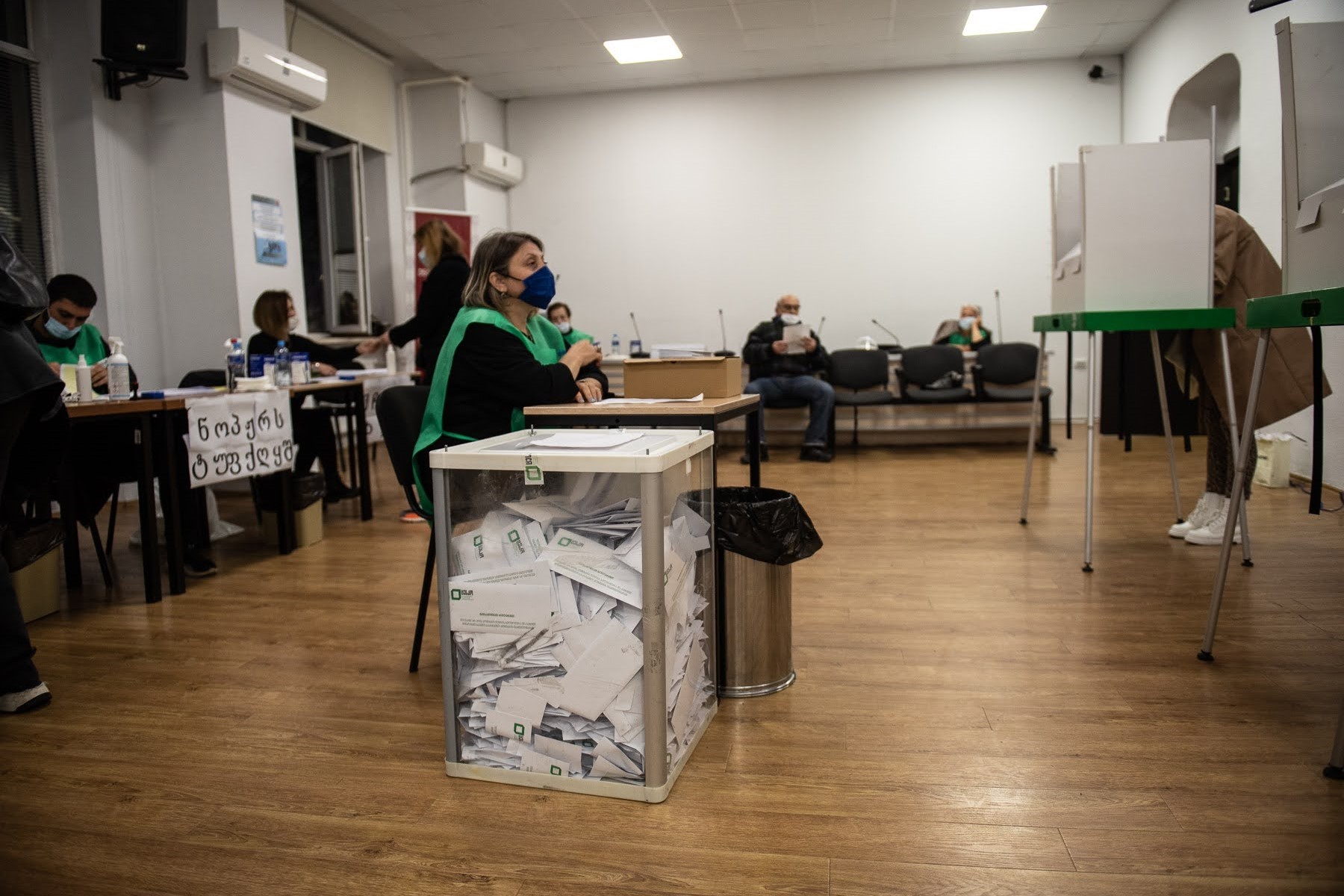Transparency International Georgia ‘no longer able’ to observe October elections

UPDATE: On Tuesday afternoon, the Prime Minister of Georgia, Irakli Kobakhidze, called on the Georgian Anti-Corruption Bureau to reconsider its decision to label TI Georgia and its director, Eka Gigauri, as entities with electoral goals. The government administration published Kobakhidze’s statement on Facebook.
According to Kobakhidze, the Bureau’s decision, from a legal standpoint, was based on the ‘highest standard of truthfulness’. However, he recommended that the status of TI Georgia should be changed ‘in order to [preserve] state interests and avoid external manipulation in the election process’.
Kobakhidze also suggested that the Anti-Corruption Bureau reverse its decisions regarding other entities recognised as organisations with electoral goals.
Transparency International (TI) Georgia has stated that they ‘are no longer able’ to observe October’s parliamentary elections, citing the Anti-Corruption Bureau’s decision to classify them as an entity ‘with a declared electoral goal’.
According to TI Georgia, this will be the first time in their operational history, spanning nearly 25 years, that they will not be participating in a Georgian election as an election observer. They stated that the reason behind this resolution was the Georgian Anti-Corruption Bureau’s recent decision to declare TI Georgia as an entity ‘with a declared electoral goal’.
On 24 September, the Bureau classified the organisation and its director Eka Gigauri as subject to the stricter financial scrutiny and regulatory requirements applied to political groups. The decision also labelled Vote for Europe, a group created in July to mobilise Georgians to cast their votes, under the same classification.
TI Georgia stated on Monday that Tbilisi City Court had denied their motion to halt the Anti-Corruption Bureau’s decision pending the court’s final verdict. They added that the refusal to halt this decision has meant that TI Georgia is in effect considered to be an organisation that is equal to a political party, and its executive director is considered to be a person equal to an electoral subject of a political party.
‘TI Georgia refuses to recognise the above-mentioned status that was imposed on us in an absolutely illegal manner’, they said. ‘We would like to stress once again that neither the organisation nor its executive director are running for election. In addition, none of our representatives appear in any political party lists. Therefore, we refuse to comply with the requirements imposed by the [ruling] Georgian Dream’s Anti-Corruption Bureau’.
According to the Bureau’s decision, TI Georgia is ‘subject to the regulations established for political parties, including the obligation to create a special election fund, the prohibition on receiving and spending any Western funding, and the requirement to submit mandatory financial reports’.
At the briefing held on 24 September, the head of the Anti-Corruption Bureau, Razhden Kuprashvili, said that the heads of TI Georgia and Vote for Europe have called on Georgian citizens to make a European choice and that they made anti-government and defamatory statements during their information campaigns and public meetings.
During Monday’s announcement, TI Georgia reported that they had no doubt that ‘this decision of the government is directed specifically against our effort to observe the elections through a coalition and the observation mission “My Voice” that was announced by us’.
Non-governmental and human rights organisations have claimed that such practices and steps made by government agencies can be a tool to limit freedom of expression and the activity of civil movements.
On Monday, the Parliamentary Assembly of the Council of Europe (PACE) stated that it was deeply concerned by the decision of the Anti-Corruption Bureau, which led to TI Georgia not being able to observe the 2024 parliamentary elections.
‘This is unacceptable and undermines public trust in the democratic nature of the electoral process’, the PACE co-rapporteurs for the monitoring of Georgia, Claude Kern and Edite Estrela, as well as the head of the PACE observation delegation, Iulian Bulai, said.
They urged the authorities to safeguard the legitimacy of the elections and to take all necessary measures to ensure that TI Georgia, as well as other respected election observers, could observe them without hindrance or interference in their work.
While the organisation as a whole will not act as an election observer, TI Georgia has claimed that each of their employees ‘will use our experience, knowledge, and intellectual resources to assist the observation mission My Voice and to help our partner organisations to conduct a highly qualified election observation mission’.
‘These barriers will not stop us’, they said.










